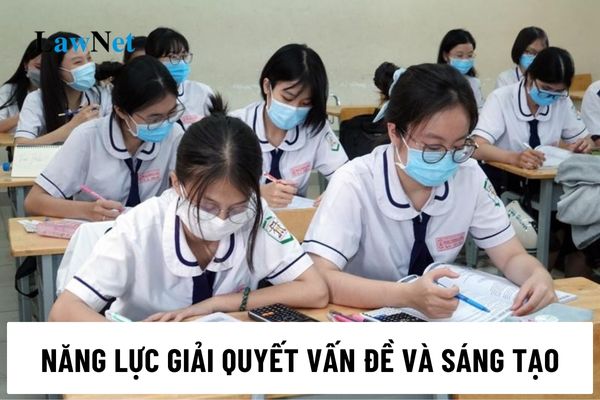What are compulsory subjects of students in grade 10 in Vietnam?
What are compulsory subjects of students in grade 10 in Vietnam?
According to Section 3 of the General Education Program issued together with Circular 32/2018/TT-BGDDT:
1. Basic education phase
...
1.2. Lower secondary school
a) Educational content
Mandatory subjects and educational activities: Literature; Mathematics; Foreign Language 1; Civic Education; History and Geography; Natural Sciences; Technology; Information Technology; Physical Education; Arts (Music, Fine Arts); Experiential and career guidance activities; Local education content.
Elective subjects: Ethnic minority languages, Foreign Language 2.
b) Educational time allocation
...
2. Career-oriented education phase
2.1. Educational content
Mandatory subjects and educational activities: Literature; Mathematics; Foreign Language 1; History; Physical Education; National Defense and Security Education; Experiential and career guidance activities; Local education content.
Elective subjects: Geography, Economic and Legal Education, Physics, Chemistry, Biology, Technology, Information Technology, Music, Fine Arts.
Students choose 4 subjects from the elective subjects.
...
Grade 10 students must study 6 mandatory subjects including Literature; Mathematics; Foreign Language 1; History; Physical Education; National Defense and Security Education.

What are compulsory subjects of students in grade 10 in Vietnam? (Image from the Internet)
What is study time according to the educational plan of grade 10 in Vietnam?
Based on Section 4 of the General Education Program issued together with Circular 32/2018/TT-BGDDT, the educational time plan for grade 10 students in an academic year is as follows:
General Education Program is divided into two phases:
The basic education phase (from grade 1 to grade 9) and the career-oriented education phase (from grade 10 to grade 12).
The system of subjects and educational activities in the general education program includes mandatory subjects and educational activities, elective subjects according to career orientation (referred to as elective subjects), and optional subjects.
The actual study time in an academic year is equivalent to 35 weeks. Educational institutions may organize teaching in one session per day or two sessions per day.
Educational institutions that organize teaching in one session per day and two sessions per day must implement the uniformly mandatory educational content for all educational institutions nationwide.
In the career-oriented education phase (Senior secondary level)
Each day consists of one session, with no more than 5 periods per session; each period lasts 45 minutes. High schools that meet the conditions are encouraged to implement teaching in two sessions per day according to the guidance of the Ministry of Education and Training.
Grade 10 students have an actual study time equivalent to 35 weeks in an academic year. Each day consists of one session, with no more than 5 periods per session; each period lasts 45 minutes. Additionally, high schools that meet the conditions are encouraged to implement teaching in two sessions per day.
What are requirements for the grade 10 textbooks in the new program in Vietnam?
Based on Article 5 of the Regulations on Standards and Procedures for Compiling, Revising Textbooks; Standards for Textbook Compiling Organizations and Individuals; Operation and Activities of the National Textbook Evaluation Council issued together with Circular 33/2017/TT-BGDDT, the contents of the grade 10 textbooks in the new program must meet the following conditions:
- The textbook content accurately and fully reflects the content of the subject curriculum or educational activities; ensures fundamental, scientific, practical aspects, and is suitable to the context of Vietnam.
- Terminology, concepts, definitions, data, events, images must be accurate, objective, consistent, and suitable to the students' level; data, events, and images must have clear sources.
- New scientific achievements related to subject curriculum and educational activities should be updated to meet international integration requirements and match the objectives of the respective subjects and educational activities.
- Educational contents regarding national sovereignty, human rights, children's rights, gender equality, sustainable development, environmental protection, and adaptation to climate change must be reasonably represented.
Note: Textbooks in each locality will be selected by schools (from the list of approved textbooks by the Minister of Education and Training), and the Provincial People's Committee Chairman will decide on the textbooks to be used within the area. Therefore, students in different regions across the country may study different sets of textbooks for the same subject.
Currently, there are 3 sets of textbooks: Ket noi tri thuc voi cuoc song, Canh dieu, Chan troi sang tao.

